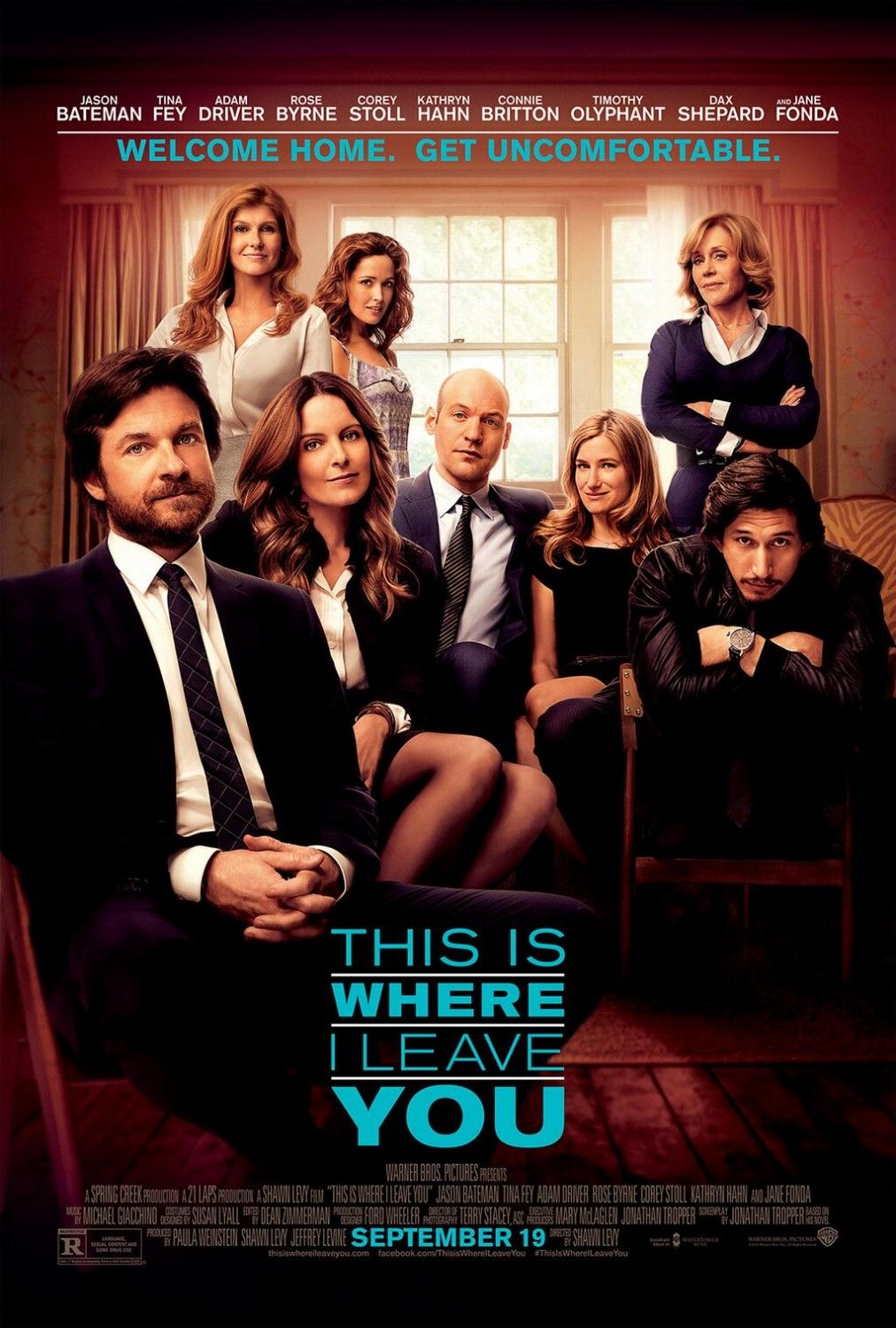
This Is Where I Leave You
Too much of anything is never bad, right?
That seemed to be the motto behind the script of the family dramedy This Is Where I Leave You. While the film proved an enjoyable way to spend an hour and a half at the theater and boasted a star-studded cast, it tried too hard to be too much of everything. The story struggled desperately to find the right balance between potty-mouth humor and heartfelt moments.
The issue pops up in the first 15 minutes of director Shawn Levy’s flick. A scene in which the Altman family discusses the death of its patriarch in a hospital room has characters bantering back and forth with a corpse — a moment that aims to evoke laughter instead of empathy. This scene, while hilarious, serves as an indication of the over-the-top-humor that is to come.
This Is Where I Leave You follows the Altman siblings as they return to their childhood home at their mother’s request to sit shiva for their dead father. In the process, the family reconnects by leaning on one another to deal with personal problems.
There’s Judd (Jason Bateman, The Longest Week), a New York radio producer who lives life by the rules and recently walked in on his wife celebrating her birthday in bed with his boss. There’s Wendy (Tina Fey, Muppets Most Wanted), a woman stuck in a loveless marriage who finds herself growing closer to high school sweetheart Horry (Timothy Olyphant, Justified), who has a brain injury. There’s Paul (Corey Stoll, The Strain), who is constantly wound up as he struggles to conceive a child with his insistent wife (Kathryn Hahn, She’s Funny That Way). And there’s Phillip (Adam Driver, Girls), the immature little brother who can’t seem to hold on to his current relationship with his older girlfriend (Connie Britton, Nashville).
The film might move down a trail of cliched melodrama at times, but This Is Where I Leave You is completely aware of the freshness and genuineness its charming ensemble cast breathes into the familiar tale. The Altman family’s hijinks and banter remind us of our own family dynamics and allow the movie to shine as more than just another Garden State or Eulogy.
Seasoned actress Jane Fonda, who plays the family matriarch, Hillary, especially sparkles in her role as a tell-all author with a boob job who doesn’t know the definition of “inappropriate.” Her character is the source of many of the film’s major laughs.
However, Fonda’s character also embodies the film’s major downfall: Its seriously flawed thinking that a boob joke must be squeezed into every dramatic and poignant moment and that character development should be sacrificed to let a character crack another one-liner.
We get it. The mom had a boob job.
There is a sincere sense of a heart beating somewhere beneath This Is Where I Leave You, and that might be the most frustrating aspect of the film. Viewers are unable to appreciate the poignant moments when they arrive because they are buried under a pile of repetitive, over-the-top gags. If only the film allowed its serious moments to just sit and breathe.
There’s a moment toward the end of the movie that features a touching exchange between brothers Judd and Phillip. When I looked over at a friend during the scene, I noticed she was crying. She later explained the moment struck a personal chord with her — reminded her of her own family.
Then the disappointment kicked in. The scene juggled humor, simplicity and sincerity perfectly — the way the rest of the movie should have.
That was the scene This Is Where I Leave You could have been, but it sadly wasn’t.



